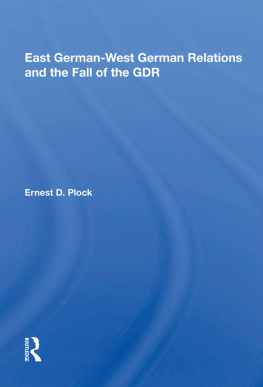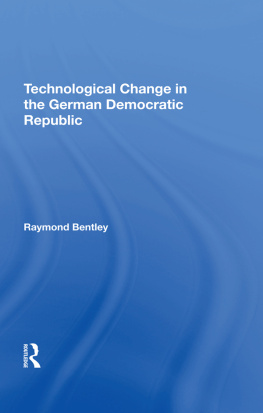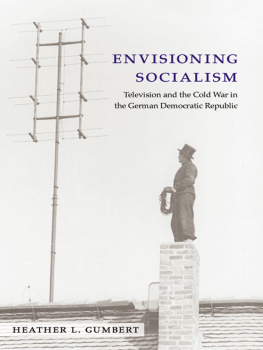John David Pizer - Ambivalent Literary Farewells to the German Democratic Republic
Here you can read online John David Pizer - Ambivalent Literary Farewells to the German Democratic Republic full text of the book (entire story) in english for free. Download pdf and epub, get meaning, cover and reviews about this ebook. year: 2021, publisher: Walter de Gruyter GmbH & Co KG, genre: Romance novel. Description of the work, (preface) as well as reviews are available. Best literature library LitArk.com created for fans of good reading and offers a wide selection of genres:
Romance novel
Science fiction
Adventure
Detective
Science
History
Home and family
Prose
Art
Politics
Computer
Non-fiction
Religion
Business
Children
Humor
Choose a favorite category and find really read worthwhile books. Enjoy immersion in the world of imagination, feel the emotions of the characters or learn something new for yourself, make an fascinating discovery.

- Book:Ambivalent Literary Farewells to the German Democratic Republic
- Author:
- Publisher:Walter de Gruyter GmbH & Co KG
- Genre:
- Year:2021
- Rating:5 / 5
- Favourites:Add to favourites
- Your mark:
- 100
- 1
- 2
- 3
- 4
- 5
Ambivalent Literary Farewells to the German Democratic Republic: summary, description and annotation
We offer to read an annotation, description, summary or preface (depends on what the author of the book "Ambivalent Literary Farewells to the German Democratic Republic" wrote himself). If you haven't found the necessary information about the book — write in the comments, we will try to find it.
Ambivalent Literary Farewells to the German Democratic Republic — read online for free the complete book (whole text) full work
Below is the text of the book, divided by pages. System saving the place of the last page read, allows you to conveniently read the book "Ambivalent Literary Farewells to the German Democratic Republic" online for free, without having to search again every time where you left off. Put a bookmark, and you can go to the page where you finished reading at any time.
Font size:
Interval:
Bookmark:


- Acknowledgements
- A Note on Translations
- Introduction
- Chapter 1 Literary Resistance to Reunification Perceived as Colonization in Novels by Gnter Grass, Christa Wolf, and Volker Braun
- Chapter 2 Europe in East Berlin: Emine Sevgi zdamars Ostalgic Constructions
- Chapter 3 Non-Simultaneity and its Corrective: Thomas Brussigs Ambivalent Engagement with Reunification
- Chapter 4 Performing Reunification as Tragicomedy: Ingo Schulze
- Chapter 5 Time out of Joint in Uwe Tellkamps The Tower
- Coda: Contra Grass: The Embrace of Reunification by Martin Walser, Monika Maron, and Fritz Rudolf Fries as well as the Beginning of the End of Autobiographical Literary Farewells to the GDR
- Bibliography
- Primary Works in English Translation for Further Reading
- Primary Literature
- Secondary Literature
- Index
- IX
Font size:
Interval:
Bookmark:
Similar books «Ambivalent Literary Farewells to the German Democratic Republic»
Look at similar books to Ambivalent Literary Farewells to the German Democratic Republic. We have selected literature similar in name and meaning in the hope of providing readers with more options to find new, interesting, not yet read works.
Discussion, reviews of the book Ambivalent Literary Farewells to the German Democratic Republic and just readers' own opinions. Leave your comments, write what you think about the work, its meaning or the main characters. Specify what exactly you liked and what you didn't like, and why you think so.







